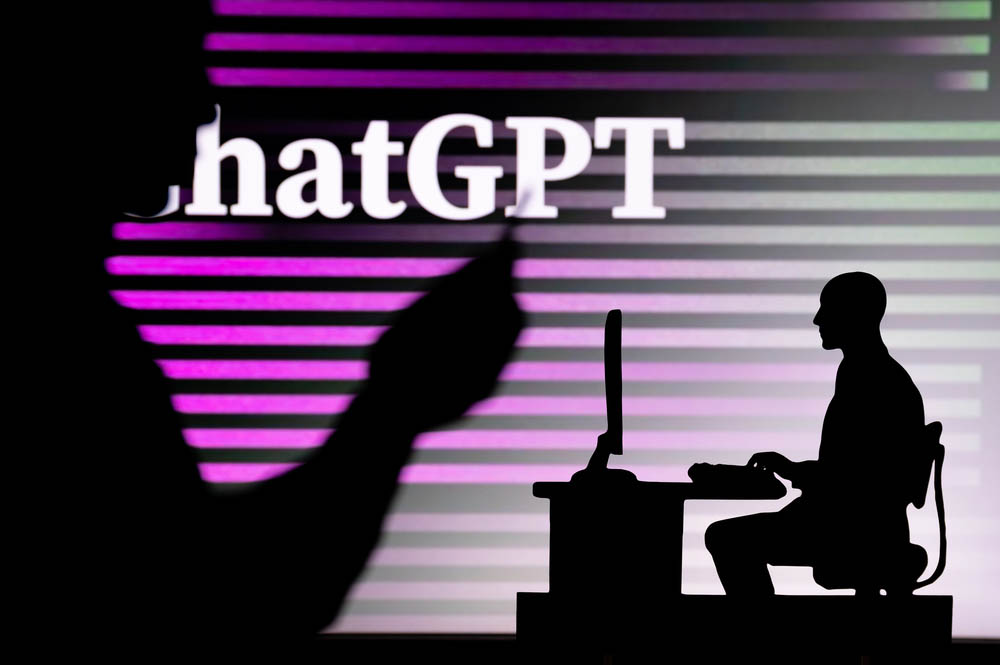Researchers, academics, and professionals are increasingly turning to large language models (LLMs) like ChatGPT to identify citations and perform literature reviews, which many consider tedious and mentally exhausting tasks.
But this has led to career-ending errors in courtrooms, security vulnerabilities in AI-generated code for websites, government documents full of falsehoods, and misdiagnosis in medical contexts, since LLMs make up fake information that appears correct (known as hallucinating) and present it with supreme confidence, all while sycophantically praising the user.
But even if you ask ChatGPT about a specific real article, can it identify if that article has been retracted due to errors, fake data, or other research misconduct? No, it cannot, according to a new study.
The researchers found that ChatGPT correctly identified zero of even the most well-known study retractions. Instead, 73% of the time, it claimed that these studies were of “internationally excellent” or “world leading” quality. Even in the minority of cases in which ChatGPT did rate the studies as low quality, that rating had nothing to do with the retraction notice or the reason the studies were retracted.
“Users should be cautious of literature summaries made by large language models in case they contain false information,” the researchers write.
The study was conducted by Mike Thelwall, Irini Katsirea, and Er-Te Zheng at the University of Sheffield, UK, and Marianna Lehtisaari and Kim Holmberg at the University of Turku, Finland. It was published in Learned Publishing, a journal focused on issues in scholarly publication and science communication.
















I recently saw a youtube post about “AI being man’s attempt at creating god,” I didn’t watch it, but largely agree, that’s what AI seems to be.
The desire to utilize LLMs to dictate one reality at a particular point in time, based upon whatever the beliefs of the particular programer believes, or is paid to program – with an understanding of the fact that, of course, that programer would want to “maintain the status quo.”
That theology neglects to acknowledge the true reality that life is a journey, and humanity should always have freedom of speech, especially on the internet, so we may collectively always work our way towards wisdom … such that we may hopefully collectively bring about a better world.
The entire idea of creating one AI, from LLMs, instead of maintaining freedom of speech and continued growth of all of humanity – which I have no doubt is God’s goal – is a really unwise idea, IMHO.
Thank you for your truthful reporting, Peter.
Report comment
I see this in the medical decision support surrounding autoimmune B12 deficiency which MIA is working with me on.
Report comment
Auto detect in itself is something! If you say B rated pub it might decide you said Brad Pitt which it seems to recognize quite easily compared with anything that would have more valuable content. Say Sly title there I said Sly title nope fly no I said sly “Sly kite’ll kiss a tree” is what I was trying to say and maybe if you say it quickly it’ll think you said psychiatrist. Say The pianist is looking for violins online and you might end up with most of the content look[ed] for on Google, but you have to say it really fast with an American accent. In fact it seems that auto detect hardly knows what vowels are unless they are totally dipped on: see, I said diphthong… and spoken so slowly it sounds like you’ve been to see Higgins and don’t give a hoot what you are saying as long as you….. I like to watch football, my parents watch football all the time, I like to see them stick their ass up in the air and I think they are going to kiss each other, but instead they ran [ram] into each other, then something that looks like it came popping out of their ass and is a bit larger than usually comes out that’s hiked up into the air and then it’s thrown about. I wonder what it means when they say someone is a tight end or a receiver. See? Auto detect got that perfectly right but for adding a y to usual, and then making ran out of RAM, that not even being right because I wasn’t referring to read only memory, but if I had said it with the sarcasm it deserves…. You think Chat GPT is going to get anything right with such a bunch of [redacted] with degrees and I don’t know how many diplomas coming out of where the football wasn’t really hidden, you think they are going to actually have the courage to actually say what they know the truth is or print it out or inspire others to actually expose it? Or care that the amount of misinformation is about as confusing as trying to ride a bike down the street and not hear all sorts of strange words blasted in your mind because of all the printed materials so large one would think your eyes were supposed to be how much enlarged to read it and yet you hear it in your mind. Ask a normal person who drives a car takes a walk rides a bike looks out the window, ask them what the clouds were like that day.
Report comment
There is no point in trying to fix something that we are unconsciously continuously creating. We need to stop creating it. In this case we need to stop creating damage to our minds and health, and without understanding this point no discussion of mental health or illness has any validity whatsoever.
The social and historical process, which is both the process of the socially conditioned intellect and the process of outward society, runs on the energy of fear and desire that comes from insufficiency, from the negation of animal and childhood freedom, from the bleakness of social existence. This deprivation is an essential part of providing the motive force for all social and intellectual activities, so if we want to understand why we drift further and further into hell and dysfunction it’s because civilization and the intellect can obviously never reach freedom, being born of it’s original and continuous negation.
Today freedom implies becoming free of intellectual control and delusion, which is what the East have said for over 5,000 years, but this is freedom of the mind – it is not health. Health demands freedom to respond elastically and sensitively to one’s inner needs which are not conscious of but the frustration of which produces the symptoms that we call stress, poor health, illness. So health implies being free of all the outward processes of society which compromise and impose on our natural freedom, something that we can see in the etymological history of the term health. The term is associated with other words – wholeness, holiness, wholesome, health: the common factor is unity, or wholeness, which implies systemic autonomy, not being governed by two contradictory things. And how can a natural life system have unity when it is torn between it’s own natural functioning and adaptation to a crude and unintelligent social process that arose in a climate of a complete ignorance of these natural needs? Only living creatures can discover them within themselves, and this is not an intellectual process hence all of medicine and science is detached from the fundamental reality of health, which is to be discovered inwardly, not in words or intellectual abstraction. So how can natural homeostasis be both to the internal rhythm of life and the external process of social history at the same time? Only if the mind begins to deeply understand this inner life process can it create an intelligent and healthy way of living.
Only by deeply understanding the life process can intelligent and healthy action take place in the social reality which would then become a living human reality, a reality within which the division between society and life ceases. Living cultures don’t have the division because they do not accumulate enormous intellectual and social structures through time which then come to regulate the life process they are detached from and blind to. This is why many chronic diseases correlate so closely to the level of industrial or social historical development. If we understood all this it would destroy not just industrial medicine as we know it, but also industrial society. There is another way that is more intelligent then both the ancient past and the appalling present, but you have to discover it all by understanding yourself, which is the whole of life. No expert or book and no words will ever show you.
Report comment
Hopefully MIA doesn’t become a devoted critic of AI because the critique of AI is useful only in improving AI, and everyone in the whole of society will be doing that work. And similarly, the endless critique of psychiatry would make total sense if a sane and just end were merely to reform psychiatry, but our understanding of health is so perverted and injurious that the solution can only be in each one of us ourselves, me and you, not in psychiatry or social policy. Just look how wasted all efforts in social reform and progressive politics have become today. Despite all efforts there is an escalating and horrifying reality before us of everything in getting worse and worse regardless. But you can go MUCH further then society in your understanding, acknowledgement and acceptance of all the facts before us, and grasping the whole picture as one total picture, one global picture, not merely a kind of arbitrary specialism which tries to divorce the problems you call mental health and treatment from the rest of reality, which is of course absurd and prevents an understanding of the terrain you are concerned with. Seeing things in relation to the whole of society and global state of humanity would radicalize your approach and expand the scope and significance of what you do. It may end up leading somewhere quite different then you imagined but that’s only because it is the nature of radical action to produce something new.
And you can go much further still by clearing all socially conditioned prejudices and assumptions from your mind, because they have value only in the social world that was, and that was the relatively pitiful value that arises from the fact that all conditioned prejudices and assumptions condition and adjust us to the social world which helps to create the order of suitable functionaries within the total system, but it makes impossible a clear and unmediated perception and understanding of our reality, which is our selves, lives and world as one conscious reality, and therefore this conditioning creates the disempowerment of ignorance and therefore the pursuit of social knowledge in order to try and remedy it, which merely increases the conditioning making the problem worse. Of course you can’t remedy ignorance about real life beyond words with mere social knowledge: you can only do so with perception, and to free and clarify that perception of all intellectual prejudice and illusion. We simply don’t understand the absolutely grave consequences of this to the dignity of human life. With the clarity that is beyond conditioning you can see and understand clearly the whole of life around you, and therefore cannot be a supplicant to the authority of others, and this would radicalize your approach to all things in life including the terrain you are concerned with.
Report comment